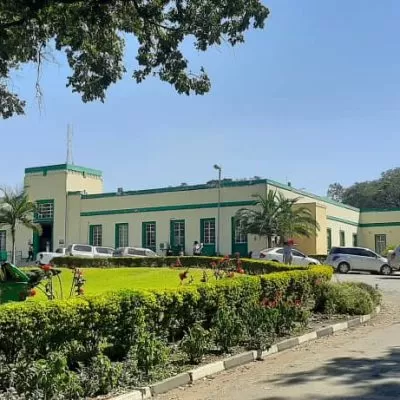By Melody Chironda
AllAfricaNews – Africa is increasingly feeling the effects of climate change, with the most vulnerable populations being hit the hardest, resulting in food insecurity, displacement of populations, and water resource stress.
The rising temperatures and sea levels, shifting precipitation patterns, and increasingly severe weather in Africa are endangering human health and safety, as well as the security of food and water, and the region’s socio-economic development, reports United Nations Climate Change.
As the world grapples with the looming threat of the climate crisis, it is crucial that all voices are heard and included in the conversation. Unfortunately, this is not always the case, as certain groups are systematically excluded from the discussion table. While the effects of climate change are felt by all, the marginalised communities who are disproportionately affected by the crisis are often left out of the conversation.
It’s time to make room for everyone at the table.
Women and youth are deeply affected by climate change, yet their potential as powerful stakeholders and change agents is often overlooked in climate policies and decisions, reports the Institute for Security Studies (ISS). However, the discussion must also incorporate other marginalised groups who are particularly vulnerable to the impacts of climate change, such as low-income communities, developing countries, children, indigenous people, the elderly, coastal communities, and small island states.
Africa is experiencing a range of devastating effects due to climate change, such as the loss of biodiversity, ecosystem degradation, and an escalation in natural disasters such as floods and droughts, which are becoming more frequent and severe. Human activities, especially greenhouse gas emissions, are the primary drivers of these changes. To mitigate the negative impacts of climate change on vulnerable communities, it is crucial to tackle the root causes of the problem, which involves reducing carbon emissions and promoting sustainable practices.
The ISS facilitated a virtual panel discussion for young Africans to exchange experiences and engage policymakers in creating solutions and developing recommendations for government leaders to address climate change.
Ottilia Anna Maunganidze, moderator and Head of Special Projects in the Office of the Executive Director at ISS, emphasized the pressing need to address climate change and its impact on vulnerable communities during a panel discussion. She cited the devastating effects of Cyclone Freddy, which recently caused significant damage and displacement, resulting in loss of life and forced relocation in the Southern African region.
According to Maunganidze, the catastrophic event was a clear reminder of the urgent need to take action on climate change, especially in vulnerable communities.
Exploring the Link Between Gender and Climate Change
“While climate change and gender equality are often regarded as separate topics, recent studies show that gender inequality has a significant impact on climate change. Women are among the most affected demographics, with 80% of people displaced by climate change being women according to the UN Environment’s 2020 report. Displaced women also face an increased risk of violence, including sexual violence, according to the UN Human Rights Commission’s 2022 report,” said Dr. Tinuade Adekunbi Ojo, Senior Researcher, and Head, Pan African Women Studies Unit, Institute for Pan-African Thought and Conversation, University of Johannesburg.
Ojo added that “despite the ongoing discourse on the catastrophic impact of climate change, not enough attention has been given to its effects on women, their contributions to addressing climate change, and how it affects efforts towards achieving gender equality. Women have fewer resources to cope with climate change, as they are more dependent on natural resources that are threatened by climate change. Additionally, women’s limited mobility and discrimination exacerbate their vulnerability. Women have become change agents in the fight against climate change, yet gender considerations are not effectively mainstreamed in ongoing climate change programmes and activities, leading to gender-blind climate financing initiatives.”
Ojo emphasised the need to target women in climate-related projects, advocate for gender-responsive financing measures, and increase the gender responsiveness of climate finance to strengthen human capacities.
Addressing mobility in climate-affected communities
Aimée-Noël Mbiyozo is a Senior Research Consultant on Migration at the Institute for Security Studies (ISS) in Pretoria, with a focus on climate change, migration, and gender. She shared her expertise and insights on how proactive measures can address immobility in communities that have been affected by climate change for decades. Mbiyozo’s work highlights the importance of considering the interconnectedness of the climate emergency, migration, and gender in policy development and implementation.
According to Mbiyozo: “Mobility in the context of climate change is a relatively new field that gained recognition at the 2010 Cancun conference and was officially included in the 2015 Paris Agreement. Mobility encompasses three types: displacement, forced migration, and planned relocation. She said that it is crucial to view mobility as an adaptation strategy rather than solely as a problem or failure to adapt to climate change. The impacts of climate change have already caused people to relocate, and these impacts are expected to intensify in the future.”
“While the most frequently asked questions are about the scale, destination, and timing of migration, there is no straightforward answer, as it depends on how we respond to climate change. Migration is a deeply personal decision influenced by several overlapping factors. Rural mobility is increasing due to the gradual onset of climate change impacts, which have significant socioeconomic consequences.”
Mbiyozo stresses that there are a few prevalent misconceptions about mobility concerning climate change that requires debunking.
What happens when women contribute to climate solutions?

